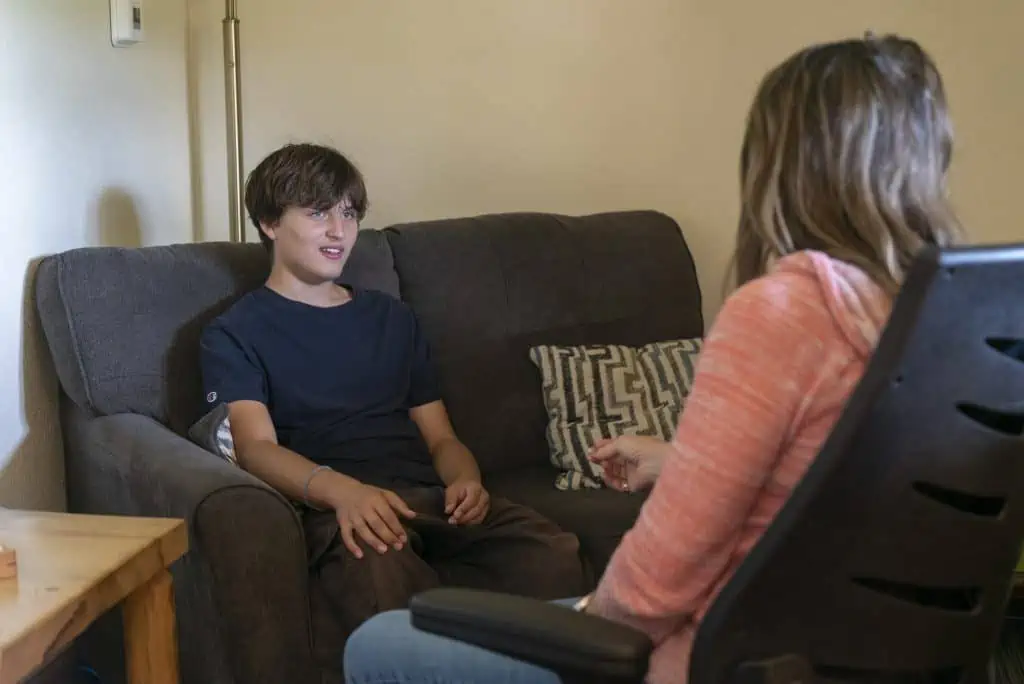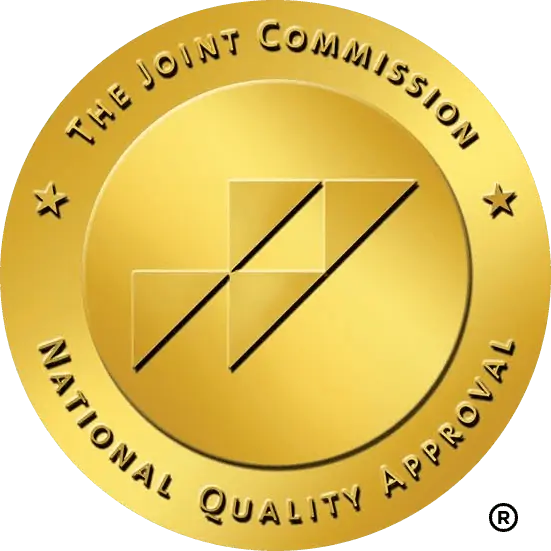Worsening grades, skipping school, and missing assignments are often dismissed as the behavior of a lazy and distracted teenager. But when a once-engaged student no longer hands in homework, retreats from their friends, or stops participating in school activities or projects altogether, it may indicate something far more serious than a lack of discipline. Academic struggles are often the most visible symptoms of deeper psychological or emotional pain.
While adults focus on report cards and routines, a silent internal crisis may be building that a typical teen doesn’t have the tools to manage or explain. And without attention to the root cause, that distress can lead to dangerous behaviors that go far beyond the classroom.
How School Struggles Can Reflect Deeper Psychological Issues
School is a demanding environment and not just from an academic perspective; it’s an emotional, developmental, and social pressure cooker. Most students are trying to understand social dynamics among their peers and fighting to fit in while also managing school work and deadlines. They’re juggling more than they let on. If you add declining mental health, you can understand how they’re easily overwhelmed. School is often the first place where the internal struggle starts to show.
The early signs are most times subtle at first and could look like a shift in focus, changes in behavior, or growing disengagement from school altogether.
These changes in behavior are often misunderstood. What appears to be a lack of effort or even defiance is often a teen’s attempt at managing internal pain they can’t clearly articulate. In some severe cases, young people may turn to substances to numb what they’re feeling, which further impairs their focus, memory, and motivation.
Common Red Flags That Shouldn’t Be Ignored
Despite their best efforts, parents and loved ones might not always recognize the signs of distress in their teens, especially when the changes are school-related.
Behavioral and academic warning signs that a young person is experiencing a decline in mental wellness may include:
- A sudden drop in grades
- Missing assignments
- Frequent absences
- Trouble focusing or retaining information
- Emotional or violent outbursts or persistent irritability at school
- Distancing themselves from classmates and teachers
- Loss of interest in sports, group activities, and extracurriculars
- Refusal to participate or chronic defiance
These signs are often regarded as a “classic” case of teen rebellion when they’re actually early indicators of mental health concerns.
Why These Signs Are Often Misread – or Missed
Teachers and school staff care deeply, but they’re not always trained to recognize the difference between normal teen struggles and emerging emotional or psychological issues.
In crowded or under-resourced classrooms, quiet withdrawal might be seen as compliance and defiance could be labeled as “normal teen trouble-making.” While sleep-deprived, unfocused teens may be assumed to be simply glued to their phones or gaming consoles every night.
Sadly, these common misinterpretations can delay critical interventions, with assistance only provided when a crisis point is reached.
How Do You Know if Your Teen Needs Mental Health Support?
Academic struggles can sometimes be isolated, but more often, they come with other warning signs. These usually appear gradually as small changes to everyday routines that can be easy to overlook.
Here are the most common signs to look out for that point to a teen struggling with their mental health:
Persistent Mood Changes
Mood changes, isolation, and sudden disinterest in activities can all be signs of teen depression, especially when paired with a decline in their academics. If your teen seems constantly down, irritable, or emotionally distant, it could be more than a passing phase.
In some cases, unexplained injuries or risk-taking behaviors may point to self-harm, a sign that the teen needs immediate intervention.
Social Withdrawal
Teens may isolate themselves from friends and family, spending excessive time alone and refusing to participate in activities they once loved. This disconnection could stem from depression, anxiety, or trauma.
Sleep Disruptions
Changes in sleeping patterns can be signs of a declining mental health. Teens may have trouble falling or staying asleep, or they might sleep far more than usual. These disruptions can lead to low energy or fatigue during the day, further compounding an inability to focus and retain information or participate in the classroom.
Teen Substance Abuse as a Coping Mechanism
Teens may turn to alcohol, vaping, or drugs to escape or self-medicate emotional pain. What starts as experimentation can quickly spiral into dependency. This is particularly troubling since teen substance abuse masks the original mental health issue and can lead to addiction, creating a harmful cycle that’s difficult to break.
Behavioral Changes That Feel Out of Character
A usually outgoing teen becomes silent and reserved. A rule-follower starts breaking boundaries. These changes are not always “just your typical teen acting out” and can signal something far more severe.
The behaviors mentioned above — often misread as disobedient, attention-seeking, or irresponsible — may be early signs of teen depression, anxiety, or unresolved trauma. They could also indicate teen substance abuse.
Why Early Intervention Matters
Identifying the signs of mental health disorders can change everything. Early intervention can improve treatment outcomes, reduce academic setbacks, and help prevent severe consequences like substance dependence and self-harm in teens.
With the right therapy, psychiatric care, and structured therapeutic programs, young people can:
- Build emotional resilience
- Regain a sense of stability
- Develop healthy coping skills
- Begin the path to lasting wellness
- Rebuild their confidence
Parents often wait, hoping their teen will “snap out of it” or that academic support alone will be enough. However, untreated mental health or teen substance abuse disorder rarely resolves itself without intervention.
The Gap Between Academic Support and Mental Health Care
Guidance counselors and school psychologists are typically the first point of intervention parents turn to when academic concerns arise. While their insights are valuable, they may not be equipped to handle complex mental health needs. Many of them are juggling large caseloads with limited time for individualized care and attention.
The American School Counselor Association (ASCA) reports that in the 2023-2024 school year the national average of students to school counselors was 376-to-1. That’s 116 students more than the recommended 250-to-1 average as set out by the association.
This leaves a gap between what’s needed and what’s available.
Schools can provide tutoring and behavioral plans, but they can’t replace the specialized and proven teen mental health resources and treatment programs designed to assist young people in a crisis.
How To Intervene, Support, and Make a Lasting Difference
When a teen is struggling with their mental health or substance abuse, getting them the help they need can prevent long-term negative consequences. Without timely access to teen mental health resources, emotional struggles can escalate into setbacks that affect education, relationships, and future opportunities.
Here are some ways parents and caregivers can help change the trajectory of a young person’s life and give them a better chance at growth and healing:
Listen Without Judgment
Let your teen express their feelings to you without fear of repercussions. They need to feel safe talking about what they’re experiencing. The goal is to intervene with compassion to open the door to trust and healing.
Involve Trusted Adults
Coaches, mentors, or other trusted, non-school professionals can offer valuable guidance, especially if your teen doesn’t want to open up to family or teachers.
Empower Your Teen
Give them a voice in the recovery process. Make sure they feel involved and not controlled. Healing is most effective when they see it as something they’re doing for themselves, not something being forced upon them.
Look Beyond the Grades
When issues like self-harm in teens or substance abuse are present, academic concerns are often just the surface of a much deeper problem. Rather than pushing harder for better grades, consider what your teen might be trying to communicate through their behavior.
Consider Professional Support
Therapy, a psychiatric evaluation, and a structured treatment program can provide the clinical care your teen may need, especially in co-occurring mental health and substance abuse disorders.
Explore Broader Therapeutic Avenues
Community-based teen mental health resources such as support groups, outpatient programs, and family counseling can be important parts of the healing process.
In more severe or persistent cases, especially when the safety of the child or the people around them are at risk, a therapeutic residential treatment center may be the most appropriate next step.
Turning Winds: Compassionate, Holistic Care for Teens in Crisis
When academic struggles point to deeper emotional or behavioral issues, temporary solutions may not be enough. At Turning Winds, we offer a unique residential treatment experience that blends therapeutic care with the restorative calm of Montana’s natural landscape.
Our program draws from the best elements of wilderness therapy, therapeutic boarding, and clinical treatment. Here, teens are supported by mental health professionals who help them open up, rebuild trust, and take ownership of their growth and recovery.
Whether your child is struggling for the first time or needs support after a relapse, we help them find a way forward — academically, emotionally, and in life.
Send us a message or call (800) 845-1380 to learn how we help your teen reclaim their future.














